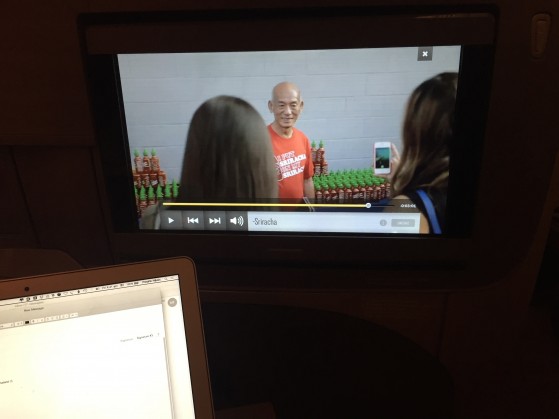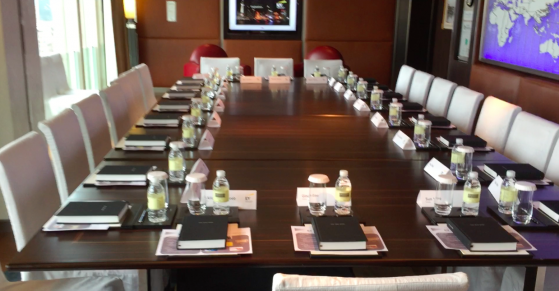On a plane between San Francisco and Hong Kong.

A journalist once commented to Princess Victoria of Sweden that it seemed that the princess was always so interested in the person sitting next to her at all the formal functions and meetings she has to go to.
The journalist asked her how she did it.
Princess Victoria replied: “My mother taught me that every person has an interesting story.”
She also said something like “it’s seems so boring to not be interested in the person next to you.”
I think that was great advice from the queen – and it is extra relevant advice for a speaker.
I am often asked how it is to go and speak for “boring companies”. I know what people mean with that question, but I have to say that I now think that there are no boring industries.
There are some industries that are super-interesting and fascinating – but there are no boring industries.
I recently did a talk for a company that does “O-rings”, arguably not a very flashy industry, but I learnt some really interesting things. After 15 years of speaking to virtually every industry you can imagine, from glue companies to makers of potato chips, I now know that every industry is fascinating. This is if you learn how to be curious by knowing how to look at something from different points of view and from your own perspective.
I am writing this post on a 14-hour intercontinental flight and I have just finished watching a documentary on the in flight entertainment system about a chili sauce.
Now, a documentary about a chili sauce might not sound super interesting, or like something that is connected to the themes I am speaking on – which are Business Creativity, Change and Having a Global Mindset.
But it was.
The documentary was about the Sriracha hot sauce that is right now taking the USA by storm. Its popularity has just exploded in the last few years and it has almost a cult following that is growing quickly. (If you do not know about the sauce, do some googling to find out what’s going on.)
I knew about the sauce through my brother-in-law in the USA who is a huge fan, but I learned some new interesting things by watching the documentary.
The sauce was created in 1987 by David Tran, a Vietnamese man of Chinese heritage who fled Vietnam as a boat refugee and who arrived in the USA with nothing. There, he started making his chili sauce and it since has grown by at least 20% every single year for almost 30 years, without ever advertising.
(Interesting Fact: He named his company Huy Fong Food after the name of the boat he spent 3.5 months on while trying to flee his home country.)
Now, they have a new factory that turns out more than 18,000 bottles per hour and they are still struggling to meet up with demand. Or in the words of Mr. Tang: “For the last 30 years, the economy went up and down. For me, I feel nothing. Every day, every month, the volume increases.”
What I did not know about the sauce was that the name “”Sriracha” was not trademarked by Huy Fong Food because it is actually a generic name of a chili sauce from a small town called Si Racha — in Thailand (!).
So let’s see: the hottest brand in hot sauces right now is founded by a Chinese-Vietnamese man, but is made in the USA, it originated in Thailand, and is most popular being used on Pasta and Pizza (Italian) and Spicy Tuna Sushi (Japanese).
This is a fun example of a product that has embraced the global possibilities of learning from and being inspired across borders.
Or as one person in the documentary said when talking about how many different Sriracha sauces are now being launched, “It’s a whole beautiful world out there.”
He was talking about a whole world of different chili sauces. But I think the quote is even better as a general statement: It’s a whole beautiful world out there. And products, companies – and people – should try to be inspired from anywhere they can.
Inspiration without borders is a nice slogan. And a good strategy. 😉
Lesson: Always collect examples that inspire yourself and which helps you develop the theme you speak on. In my case, it’s seeing the connection between a chili sauce and the value of having a global mindset. In yours?
P.S. I have to end by sharing a wonderful quote from the humble Mr. Tang. When others advised him that he would sell more bottles if the sauce was not so spicy, he replied: “No, a hot sauce has to be hot!” 😉

